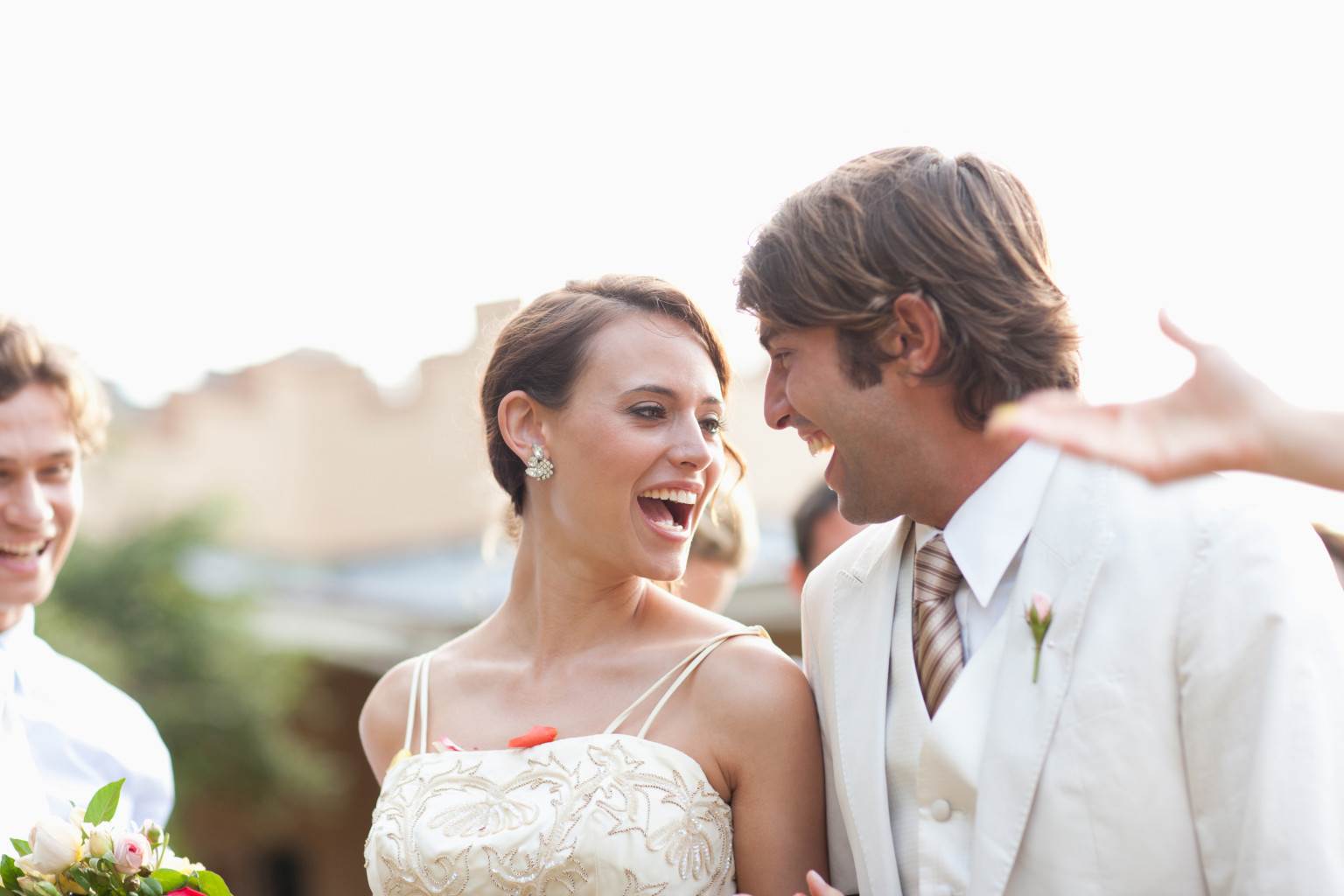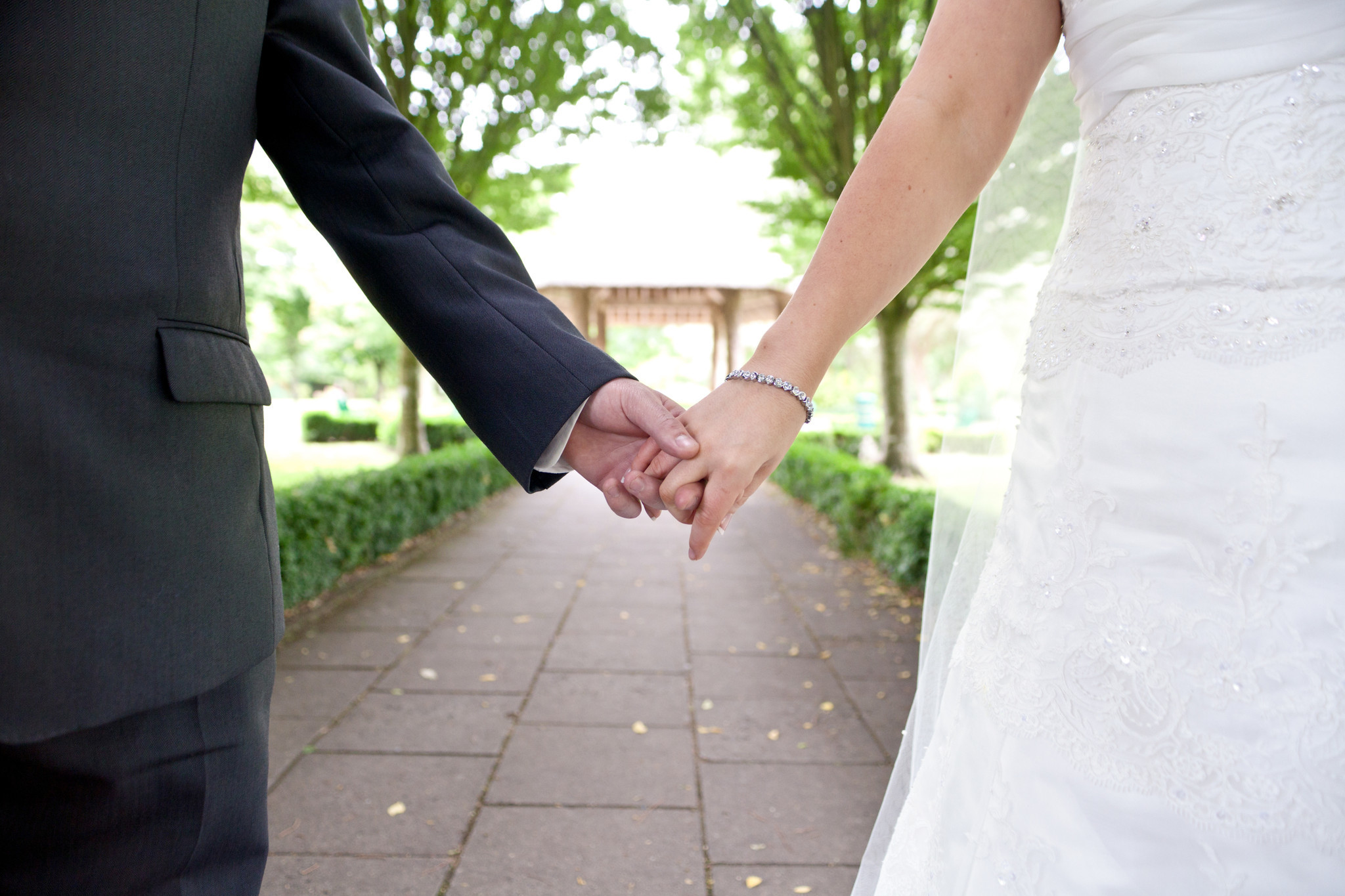Merry in Marriage Regardless of Age
College culture discourages students from venturing into the lands of love at a young age, but getting married at 20 has changed my life for the better.
By Molly Flynn, University of North Carolina at Charlotte
I am a senior in college and have been married for two years.
Before you ask, no I am not a “non-traditional” student when it comes to my age. I got married at a wee 20-years old, and I do not regret it for one minute. Seriously, I don’t. Sure, there are moments when my fairy-tale relationship gets rocky, but I have genuinely enjoyed getting married so young, even though it prompts people to question my age in relation to my marriage.
Any time I reference my husband in conversation, the natural progression is, “Oh, you’re married? How old are you?” Don’t get me started on how rude I think this question is and how I don’t feel like I need to explain to every single person why I got married so young. Most people are innocently trying to alleviate their surprise that baby-faced me has a ring on it—two rings actually. However, regardless of intent, my age and my decision to wed shouldn’t be that important to strangers on the street. Strangers on the Internet, however, are a different story. Cue this article.
In the past, getting married young was normal. In the 1950’s, women were expected to find themselves a charming chap and start popping out children as soon as possible. While the average age in the U.S. today for a woman to get married is almost 27, 60 years ago that number was a whopping 20. Apparently, I fit better in the 1950 average than the 2016 average, but that is about the end of what I have in common with the ‘50s idealized housewife.
Back in the day, it was assumed that women went to college to get a “MRS” degree, a.k.a. a husband. I don’t know about yours, but my university definitely does not offer a MRS degree program. If it did, I am not sure how many of my fellow students would declare it because, while there was a weighty societal pressure to get married young in the glory days, today it’s almost the opposite. Also, it’s extremely misogynistic to assume only men go to college to actually get an education.
Sorry, “Legally Blonde,” but Harvard isn’t the battleground for women finding husbands.
Marriage standards and expectations in our culture have changed a lot over the years. It’s not that people don’t get married anymore or that people don’t want to get married anymore, it’s that they are postponing it. There’s a strange belief that you have to “discover” who you are in college and through that self-enlightenment, you will be ready for “the one.” The funny thing about this is that marriage in not the matrix. And “the one” we’ve all been waiting for will not be bullet-dodging Neo because—spoiler alert—“the one” does not exist.
So, if there is not a magical “one” out there to fulfill all of our nuptial needs, then waiting is a moot point. Believing that one person is made for you can oftentimes be extremely disappointing, too. If you’ve found “the one”, why are they not perfect and constantly uplifting you? If you feel attraction towards another person in a few years, does that mean that you chose to marry the wrong person? No, marriage is about commitment and choosing to love someone—choosing to love someone for your entire life.

Speaking of love, another belief I’ve heard regurgitated by a lot of people is that in college, you are “still learning what love is.” Sure, maybe, but aren’t we always learning what love is? I’m sorry, but what exactly is the age when we magically become enlightened about all-things-love? There isn’t one. And I argue that it is better to learn what love is with your spouse than on your own, anyways.
Now, I am not here to inspire everyone to go find a spouse in his or her HIST 101 course. I realize that not everyone should get married in college—or at all for that matter. I am not promoting monogamy to tell you that if you have sex, you will get pregnant and you will die, but I am here to dispute the idea that if you get married, you will get pregnant and you will die. After being married for half of my college career, I can tell you that for me the married portion has been much better than the single one—and no, I am not yet pregnant nor am I dead.
There are many benefits of making a marital commitment in college. For example, while many of my friends would bring different boys home every other week in college, I had one man every night (I promise you, monogamy can be pretty sexy). By committing to my husband so young, I was able to ditch the pregnancy scares and the walks of shame and still “get some” more frequently than the most enthusiastic of my friends. While one in four college students have an STD, I did not have to play Russian roulette with my sexual health because that ratio does not apply to my monogamous lifestyle. After getting married, I stopped having to worry about inviting some random frat guy to my semi formals and, above all, I avoided the Tinder epidemic. Praise the Lord.
But, a lot of people don’t realize the benefits of marrying young and in college because they have preexisting ideas of what marriage will do to you. There is a fear present in college culture that marriage will prohibit you from achieving your dreams. “You better travel the world before you settle down!” “Make sure you are well on your career path before you sign your life away.” These little nuggets of wisdom most students hear, especially from middle-aged unfulfilled married people, instill in us the belief that marriage will hold us back. We fear we’ll get to midlife and resent our spouse because if we hadn’t said our vows, we’d be nibbling on crepes in Paris or cuddling with baby lions in Africa. A nihilistic view of marriage, however, is not always rooted in reality but rather in our selfish desire to achieve goals and ambitions that we think we deserve.

Regardless of these cultural fears, marriage has not held me back in college. I’ve actually traveled more with my spouse than when I was single. I’ve been just as involved in my job as before but now, I have an encourager to come home to when I’ve had a rough day. My husband inspires me to pursue opportunities that might even keep us apart for some time. He researches job opportunities for me and helps me network through people he’s met at his place of employment. Okay, obviously I got lucky with finding such a great hubby, but by completely disregarding the idea of getting married young, a lot of people miss out on having a marriage like this.
While it may annoy me that people get flustered when they realized I got married at 20, I secretly enjoy shocking society. Sometimes, to really get people going, I throw in the fact that my husband and I only technically dated a month before getting engaged, but that’s another story for another time. Despite the annoyance I have with people’s opinions of my life choices, the protesting plebeians do give me an opportunity to campaign for young marriage.
So, to those of you out there who crusade with the masses against matrimony in college, I argue that getting married young does not have to limit your potential for success, and it definitely does not have to be a death sentence to your exciting sex life. Believe me, I can attest to both points.

















